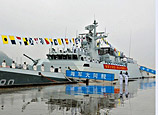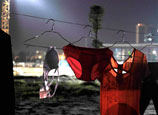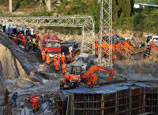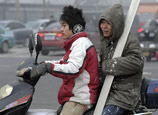
In an underground mall just a stone's throw from the Chinese mainland's border with Macau, a row of 30 small shops with identical gold plaques do a brisk, though shadowy trade with mainland visitors, many of them bound for the gambling hub.
"Good rates. Better than the banks," shout salespeople jostling to usher clients into shops where thick wads of notes change hands. Licensed as liquor and dry goods stores with stacked shelves of rice wine and cigarettes, many conduct their real business in back rooms - as underground bankers and remittance agents.
"It's very simple," said one agent surnamed Choi. "You give me renminbi here. Then we deliver Hong Kong dollars to you in Macau. We can move tens of millions each day," he said.
As China's economy and financial markets mature and gain in sophistication, so too does a vast underground banking industry offering swift, cheap and low risk cross-border fund transfers. Much of that activity is conducted openly on the streets of south China's Guangdong Province, where businesses and individuals depend on underground networks to get around strict currency controls - both for legitimate commercial purposes and to safeguard assets beyond the reach of authorities.
Money laundering
Beijing is finding it increasingly difficult to stem the tide of speculative and illegal cash. In the decade since China began cracking down on money laundering, the government has amended criminal laws and strengthened commercial banking rules, but loosening restrictions on capital transfers has made it easier for hot money to be channeled across the border.
"China's financial markets are not that mature," said Yu Yongding, an economist at the Chinese Academy of Social Sciences and former adviser to the central bank. "There are lots of capital controls that have certainly contributed to these kind of activities, while corruption and money laundering also play an important role."
In affluent Guangdong in the Pearl River Delta region, cities like Zhuhai, Shenzhen, Guangzhou and Dongguan are major underground conduits for Chinese hot money. The province, where imports and exports amounted to US$984 billion last year - a quarter of China's foreign trade - has served as a portal for capital flows since China's economic opening over 30 years ago.
Collectively, the cities form part of a giant, unregulated underground banking triangle between the Chinese mainland, Macau, the world's gambling capital, and the global financial hub of Hong Kong.
In Zhuhai alone, more than a billion yuan (US$163 million) is transferred daily through underground networks, according to a straw poll of six agents from a tight-knit group of 100 in the border area.
Another deep-rooted echelon of shadow bankers exists across Guangdong out of public view, often working from secret offices, with deals conducted between trusted, well connected parties, often with just a phone call.
The Washington-based Global Financial Integrity group estimated about US$2.83 trillion flowed illicitly out of the Chinese mainland from 2005 to 2011, with Hong Kong the largest recipient.
"The enormity of money laundering right now is a problem," said a senior law enforcement official in Hong Kong. "Chinese banks in Hong Kong are basically a black hole, even now."
Yan Lixin, secretary-general of Fudan University's China Center for Anti-Money Laundering Studies, reckons more than a third of the capital moving through underground banking channels is dirty money being laundered. "According to the statistics within my scope and my own experience, it's approximately 30-40 percent at least," he said. "The situation is going from bad to worse."
Much of the unofficial flows of capital into and out of the triangle of Guangdong, Hong Kong and Macau, facilitate trade and investment, say businessmen.
















 University doors open for its security guards
University doors open for its security guards


![]()
